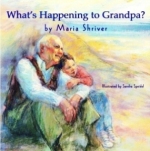Alzheimer’s disease will eventually affect how a person thinks, feels, acts, and reacts to the environment. Symptoms will gradually increase and become more persistent. Although there is no known cure, growing research indicates that eating well and staying physically and mentally active can help reduce the risk of developing Alzheimer’s disease.
To date, the Government of Canada has invested more than $176 million in research to find ways to prevent Alzheimer’s disease and its devastating effects on Canadians and our health system. In 2009-2010 alone, we invested close to $23 million. In addition, we are currently working with Canada’s major neurological charities, and investing $15 million over four years, to increase our knowledge of neurological conditions, including Alzheimer’s disease.
In a recent speech the Minister of Health, encouraged all Canadians to take some time during Alzheimer’s disease Awareness Month, to learn more about the disease. Family members often mistake Alzheimer’s disease symptoms for depression or normal signs of aging. That is why it is important to be informed about the disease, and to know what support options are available.
At first, there are subtle changes in memory loss such as forgetting names, misplacing items and missing appointments. However, over time there is deterioration in most of the neurological functions. The patient is usually devastated, confused and often gets aggressive and frustrated when they try to understand what is happening to them.
This disease robs an individual of memory, in the beginning it is just the short term and then it affects the long term. It destroys the capability to reason, and to use common sense and logic.
It can be even more devastating for the primary caregiver who face the everyday challenges and caring for these individuals.
Anyone who has read my previous blogs will know that I was the main caregiver for my mother who is now 93 years old and in a nursing home.
My mother had lived with my family and me for about thirty years. When she was first diagnosed with Alzheimer’s, she was given some great medications that cut the progress of the disease by fifty-per-cent and for quite a little while she was fine, until she started to show signs and at times became danger to herself and could not be left alone.
I found it very hard to watch her deteriorate to a state where she could not function in the easiest of tasks. I also took the brunt of her temper when she would get frustrated. The social workers at the Arthritis Society suggested that no matter how wrong or illogical she became, we were to agree with her. It was hard at first but in the end, it was much easier and less stressful.
Most Alzheimer’s Society branches run day programs. For almost three years, I would drop my Mom off daily on my way to and from work until one day; she caught a virus and had to stay in the hospital for several weeks. It was during this time I realized I was losing sleep and under great stress from looking after her daily needs. It was then my family, the doctors and the social workers felt that it was time I looked for a placement for her.
At first, she was angry with me, but she has been in the home for several years and has settled-down; and is quite happy now. She still recognizes my sister and me, although at times she gets a little confused. The staff at the home looks after her much better than I ever could with around the clock care.
I cannot stress enough the importance of having a support team. This could be your friends, family, doctors and most importantly your office of the Alzheimer’s Society. I do not know what I would have done without their help, advice, programs and support.
In the past we have featured the following book as a great source for explaining Alzheimer’s to children.
“What’s Happening to Grandpa?” by Marie Shriver. This book is a must for any family that has someone with Alzheimer’s and young children.

This book is well written with warmth; Marie Shriver does an outstanding job helping grandchildren understand. What some adults may not know about – the battlefield of aged minds. Maria has done a marvelous job of explaining it all in terms that will help your children, as well as yourself, understand, accept and cope with one of the hardest times a family can face.
Related articles
- NIH compound could reverse symptoms of Alzheimer’s (fiercebiotechresearch.com)
- Ontario woman aims to end stigma of Alzheimer’s disease (ctvnews.ca)
- Alzheimer’s disease is huge burden for US society (seattlepi.com)
- NASA, Alzheimer’s, and Cosmic Ray Shielding (guardianlv.com)
- Promising compound restores memory loss and reverses symptoms of Alzheimer’s (eurekalert.org)
- Lenarduzzis living with life’s stolen moments (vancouversun.com)







Thank you Sylvia for reminding us that this is Alzheimer Month. I’m lost several people who were very close to me due to Alzheimer’s. Thank you as well for being an active participant in the care of your mother. I’m sure this post will help other recognize the importance of the information your are sharing.
Rich
Pingback: Education - Beautifully Said Magazine
Many thanks for your kind words, they were greatly appreciated. Warm regards, Sylvia
Many thanks for the kind words Rich – they were really appreciated.